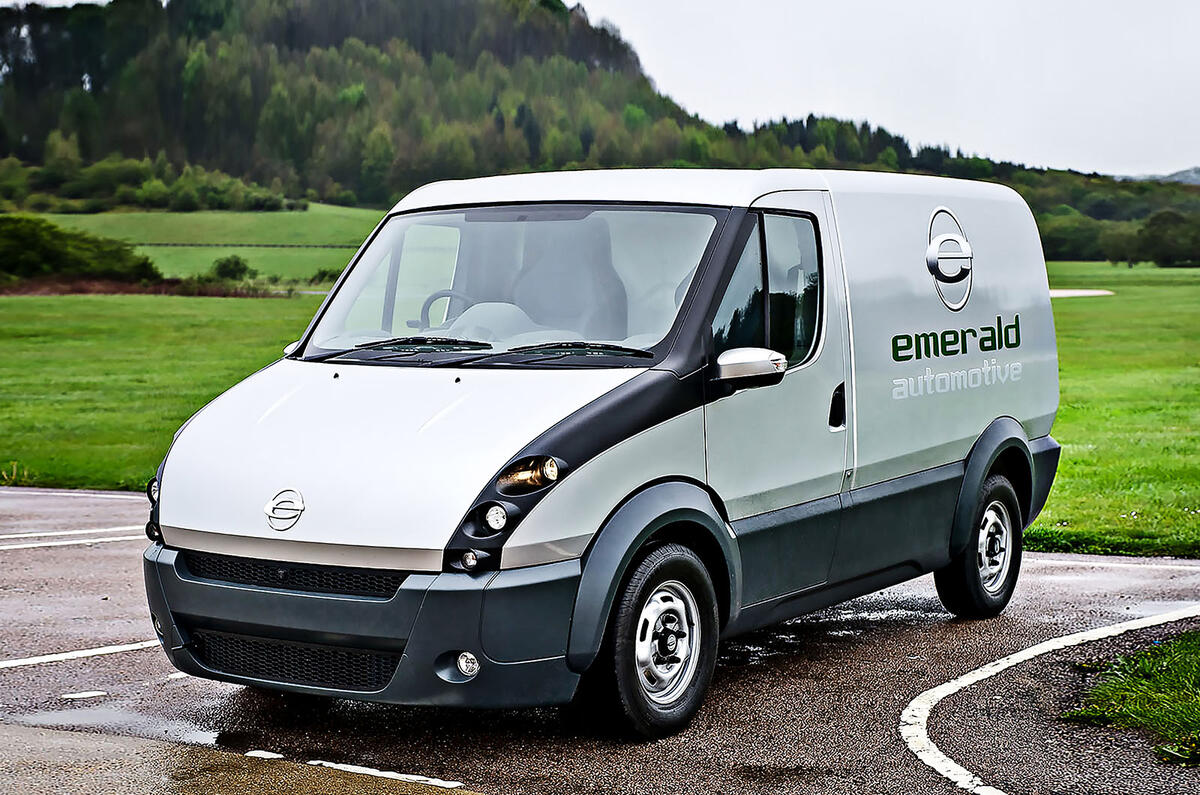Britain is expected to become home to the world’s first mass-produced extended-range electric delivery van with the launch of the Emerald T-001 late next year, Autocar can reveal. Based around a range-extender powertrain, the vehicle combines a 66-mile EV range with the ability to deal with a 1400kg payload arranged on three standard pallets.
The technology opens the way for zero-emissions deliveries in towns and cities to arrive at a time when the annual average mileage of light commercial vehicles (LCVs) is growing dramatically due to the significant consumer shift towards internet shopping. Emerald Automotive is owned by Chinese car maker Geely, which also owns Volvo and London Taxi International (LTI). LTI’s new London black cab, the TX5, is based on the same aluminium chassis and powertrain as the T-001 van.
The van and taxi are part of a £250 million investment which should also result in 1000 new jobs being created at a new production facility near Coventry. Both the taxi and van should be rolled out in September next year.
Last autumn, Chinese premier Xi Jinping visited the UK and viewed the final version of the TX5 — the design of which was overseen by ex-Volvo design chief Peter Horbury — with prime minister David Cameron, although no mention of the delivery van derivative was made. It has been revealed, however, that the new factory will have an annual capacity of around 36,000 units per year. With the TX5 facing competition from the new Frazer-Nash electric black cab and sales expected to run at a maximum of 5000 units per year, it would appear that Geely is expecting sales of up to 30,000 delivery vans a year. So far, Emerald has only revealed details of two versions of the van — a short-wheelbase model and a high-roof, longwheelbase variant — but a minibus derivative is also likely.
Emerald Automotive also has a US base in St Louis, Missouri, and is competing for the contract to replace the 170,000 vehicles used by the US Postal Service. Should the bid be successful, the T-001 would become a significant player in the booming global market for LCVs.
Originally developed independently in the UK by Emerald Automotive with help from engineering specialist Ricardo, the T-001 project was bought by Chinese car maker Geely in February 2014, shortly after the Chinese took full control of the ailing LTI. Details about the T-001 are relatively sparse, because the division of Geely that owns the business is privately held and the company is not communicating with the public or press.
However, a single spec sheet released by Emerald shows that the van promises a battery-only range of “over 66 miles” and an additional 342 miles using the four-cylinder engine/generator. It has a top speed of 85mph and can hit 60mph in 8.5sec, aided by its 442lb ft of torque.
It’s possible the T-001 will benefit from ‘live’ powertrain management, with the system acting intelligently by using information on local traffic conditions and road topography to extract maximum efficiency. Emerald also says it expects a five-star Euro NCAP crash test result.
The T-001 uses composite body panels, has a 25kWh battery under the forward floor and the internal combustion engine mounted in the nose. Emerald isn’t saying whether it will use a petrol or diesel engine, although the former is more likely. The rear wheels are driven by the vehicle’s electric motor, which is mounted on the rear axle.




Join the debate
Add your comment
Everything old is new again
Turns out the Chinese and British make a great partnership
Most vans do mega miles
Campervan wrote: Most vans do
It's a range extender with a petrol/diesel engine too, like the range extender BMW i3.